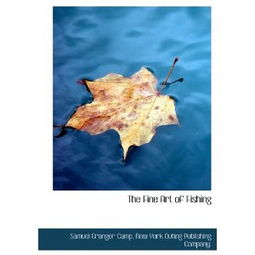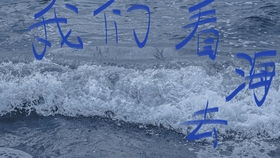Introduction
Fishing in open waters can be an exhilarating experience, offering anglers the chance to explore vast expanses of water and catch a variety of fish. However, mastering the art of fishing in these environments requires specific techniques and knowledge. In this article, we will delve into the essential tips and tricks for successful fishing in open waters, from choosing the right equipment to understanding fish behavior.
Selecting the Right Gear
The first step to successful open-water fishing is to equip yourself with the right gear. Here are some key items to consider:
- Rod and Reel: Choose a rod and reel that are suitable for the type of fish you are targeting. A medium-heavy rod with a good backbone is ideal for open-water fishing, as it can handle larger fish and the currents often found in these areas.
- Line: Use a line that matches the rod and the fish you are aiming to catch. Monofilament line is versatile and works well in most situations, but consider using braided line for increased sensitivity and strength.
- Hooks: Select hooks that are appropriate for the size and type of fish you are targeting. Larger hooks are often better for open-water fishing, as they can withstand the strain of larger fish and the currents.
- Lures and Baits: Vary your lures and baits based on the fish species and the conditions. Soft plastics, spinnerbaits, and jigs are popular choices for open-water fishing.
Understanding the Environment
Before you cast your line, it's crucial to understand the environment you are fishing in. Here are some factors to consider:
- Water Conditions: Check the water temperature, clarity, and depth. Fish behavior can be significantly affected by these factors, so tailor your approach accordingly.
- Currents: Open waters often have strong currents, which can affect how your baits and lures behave. Be aware of the currents and adjust your technique to compensate.
- Structure: Look for underwater structures such as rocks, logs, and drop-offs, as these can be prime spots for fish to hold.
Timing and Techniques

Timing is everything in open-water fishing. Here are some tips to help you catch more fish:
- Early Morning or Evening: Fish are often most active during these times, so start your day early or fish until dusk for the best results.
- Chumming: If you're fishing in a specific area known for certain fish species, consider chumming to attract them to your spot. This involves adding a substance, such as fish oil or blood, to the water to attract fish.
- Cast and Retrieve: Use a cast-and-retrieve technique with your lures or baits. Experiment with different retrieves to see what works best for the fish you're targeting.
- Drift Fishing: If you're fishing in an area with strong currents, consider drift fishing. This involves casting your line into the current and allowing it to drift naturally with the water, which can be very effective for certain fish species.
Fish Behavior and Spot Selection
Understanding fish behavior is crucial for successful open-water fishing. Here are some tips:
- Schooling Fish: Look for signs of fish schools, such as surface disturbances or schools of baitfish. These can indicate the presence of larger predators.
- Cover: Fish often seek cover to hide from predators. Look for areas with vegetation, rocks, or other structures that provide shelter.
- Depth: Fish may be found at different depths depending on the species and water temperature. Use your depth finder to locate fish and adjust your bait accordingly.
Safety and Etiquette
Safety and etiquette are important considerations when fishing in open waters:
- Boating Safety: Always follow boating safety rules, such as wearing a life jacket and being aware of your surroundings.
- Respect the Environment: Keep the area clean and respect other anglers and wildlife. Avoid disturbing fish or other marine life.
- Know the Regulations: Familiarize yourself with local fishing regulations and adhere to them to ensure a sustainable fishery.
Conclusion
Fishing in open waters can be challenging, but with the right techniques and knowledge, it can also be incredibly rewarding. By selecting the appropriate gear, understanding the environment, and applying effective fishing strategies, you can increase your chances of success. Remember to prioritize safety and respect the natural environment, and you'll be well on your way to becoming a skilled open-water angler. Happy fishing!












